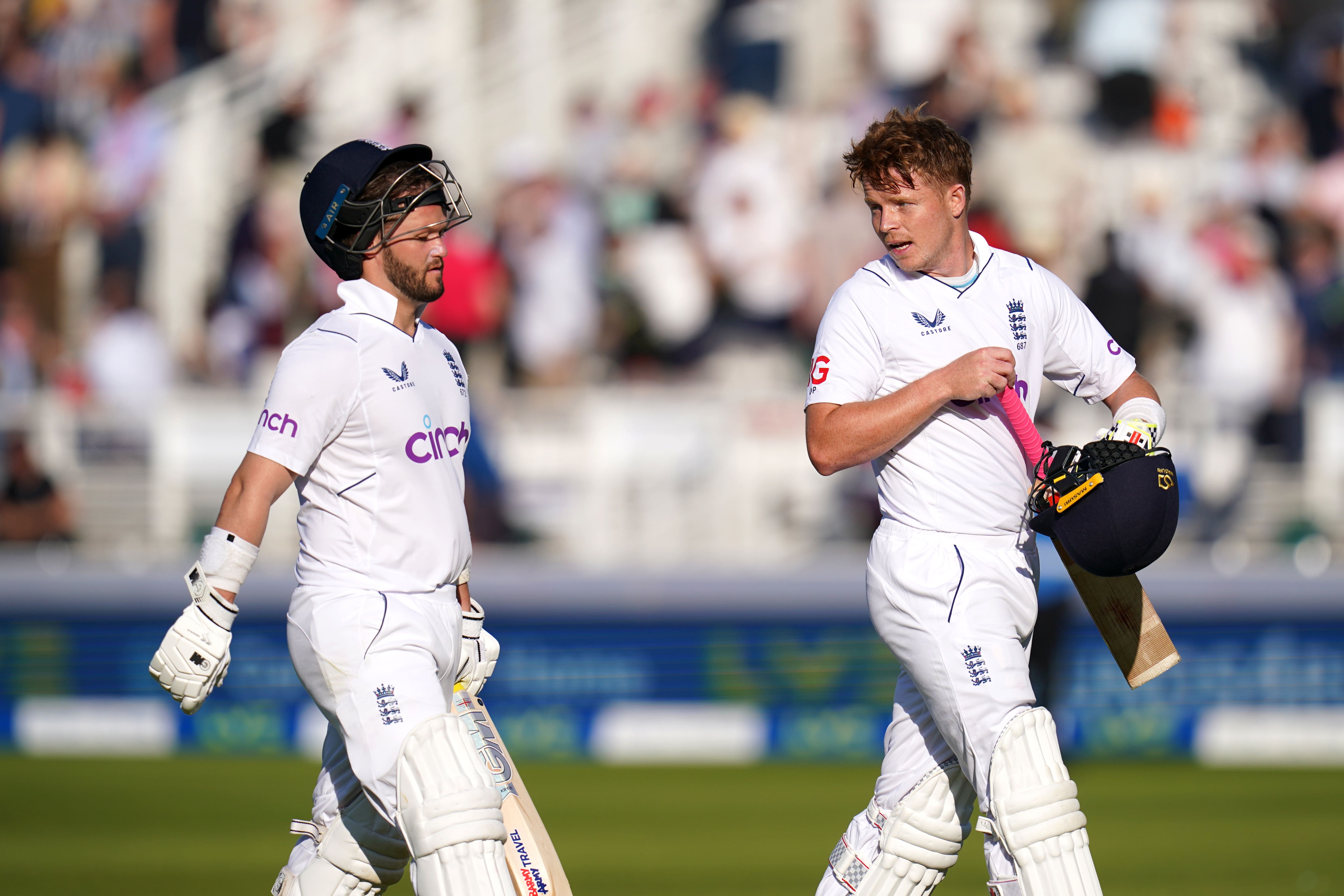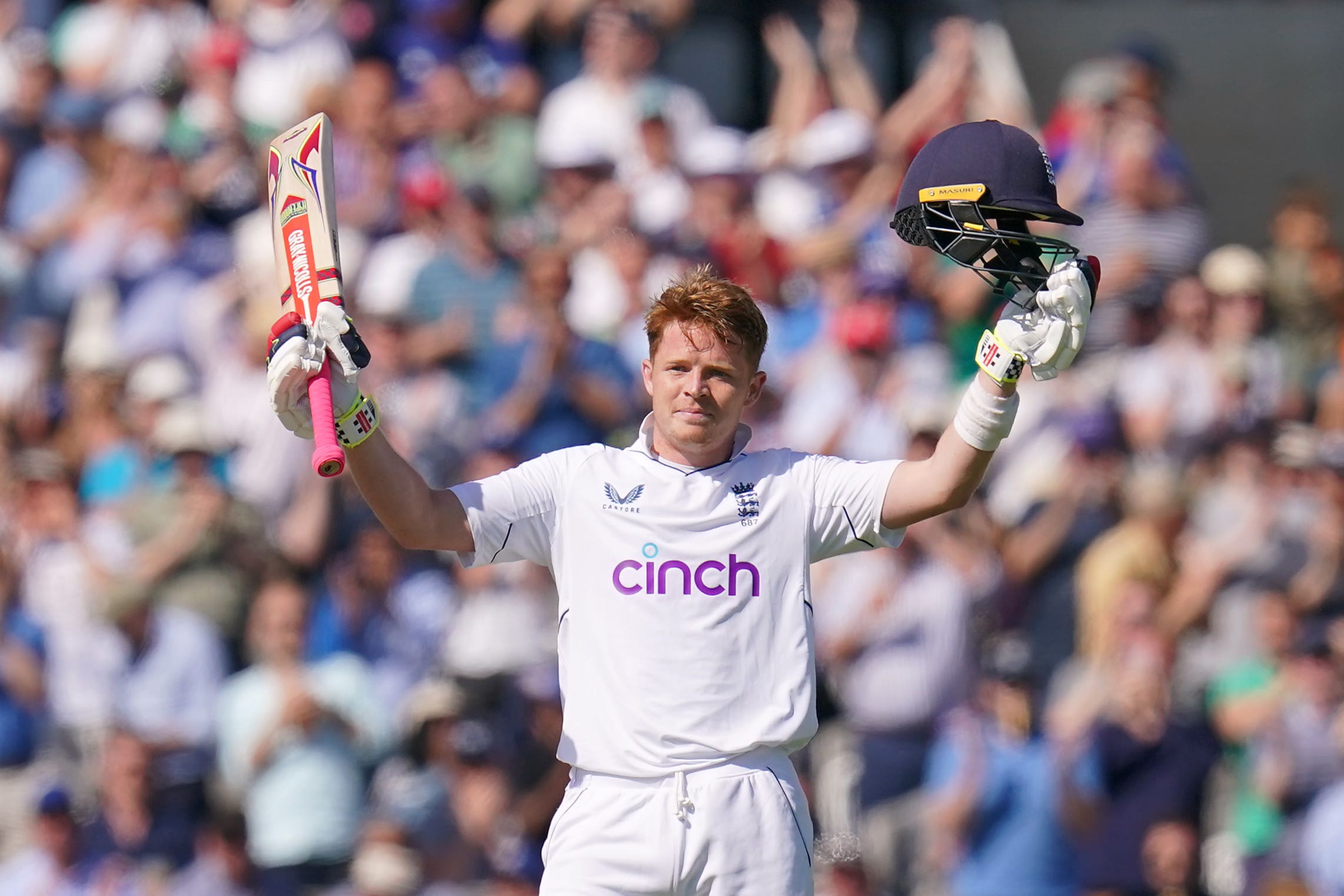
England have done what they set out to do. No one who was in attendance in the Lord’s crowd on day two could go home saying they were not entertained by England’s show with the bat.
They were not reckless, the first six of the day came just before 2pm, from Ben Duckett who was on 176 at the time. England just looked comfortable, and the batting looked easy as they amassed 524-4 in reply to Ireland’s 172 all out.
It was a day Ollie Pope will never forget, bringing up his maiden Test double century in emphatic fashion, with a six over the top to put his name in the history books with the fastest 200 in Test cricket in England.
There were echoes of the first day at Rawalpindi when England thrilled on a dead flat deck and scored 500 in the day. Duckett got a century that day too, as part of a 233-run stand with Zak Crawley in just 35.4 overs.
There was almost more to be gleaned from Crawley’s innings, who scored 56 from just 45 deliveries including some beautiful drives on the first day. At times he chased runs, throwing his hands at the ball and leaving himself vulnerable, but he did a job for England, and they will hope he can do the same against the experienced Mitchell Starc, Pat Cummins and Josh Hazelwood in just a couple of weeks.
On occasion Pope was slightly uncomfortable, but he was predominantly untroubled by Ireland’s medium pace attack, with any sideways movement hard to come by as the sun beat down without a cloud in the sky throughout the afternoon in west London.
Duckett might be left to rue his best chance to get a double Test century, when he was bowled by Graham Hume for 182, but he seemed to effortlessly find every gap in the field, without having to be too creative.
The ramp shot did make a brief appearance against spinner Andy McBrine, but it was largely played by the book, while Ireland offered very little threat with the ball.
Although, Duckett believes Australia offer a different challenge, telling the BBC: “I know how difficult that challenge will be, especially at the top of the order, they are probably one of the greatest attacks ever."

Pope brought up 200 from just 207 balls which deserves to be commended despite Ireland’s mediocre medium-pace attack. Although the Surrey batter maintained a strike rate of 98.55 throughout his innings it was not ruthless or risk-taking, he just played comfortably as Ireland toiled.
However Pope did not downplay the importance of scoring runs early in the summer, saying: “There’s no denying that Australia’s attack is stronger than Ireland’s but scoring runs at Lord’s and scoring runs in Test matches is a habit, a good habit to get into early.
“It’s good to know for me what works for my preparation, to go about that in a similar fashion in the Ashes and hopefully continue that form.
“It’s about finding a good rhythm, which I feel like I’ve had in county cricket this year.
“Test runs are very special no matter who you play and the guys who batted today [will have] taken a lot of confidence from it.”

Joe Root, who also did not score a century in the first innings of the Test in Pakistan, was out playing across the line for 56, while Harry Brook hit nine from seven including a boundary in a very one-day style innings.
England were utterly dominant with the bat, exploiting the field, waiting for the bad ball. But, despite being the only game before the Ashes, there is little to be learned from how the same players will cope against the skill and pace of the Australian seam attack. Ireland’s offering just cannot compare, before England declared, at 524 for just four wickets.
When it came to Ireland’s turn, Josh Tongue was able to finally celebrate his maiden Test wicket, having been unsuccessfully deployed bowling short in the first innings.
The Worcestershire paceman struck twice in an over, before taking his third to dismiss Ireland’s most experienced player in Paul Stirling, and they finished the day on 97 for three, trailing by 255.
Tongue has already claimed the wicket of Steve Smith this year in the County Championship, but the signs are good for England with the ball, as they will have to rotate their bowlers during the Ashes schedule of five Test matches in six weeks.







